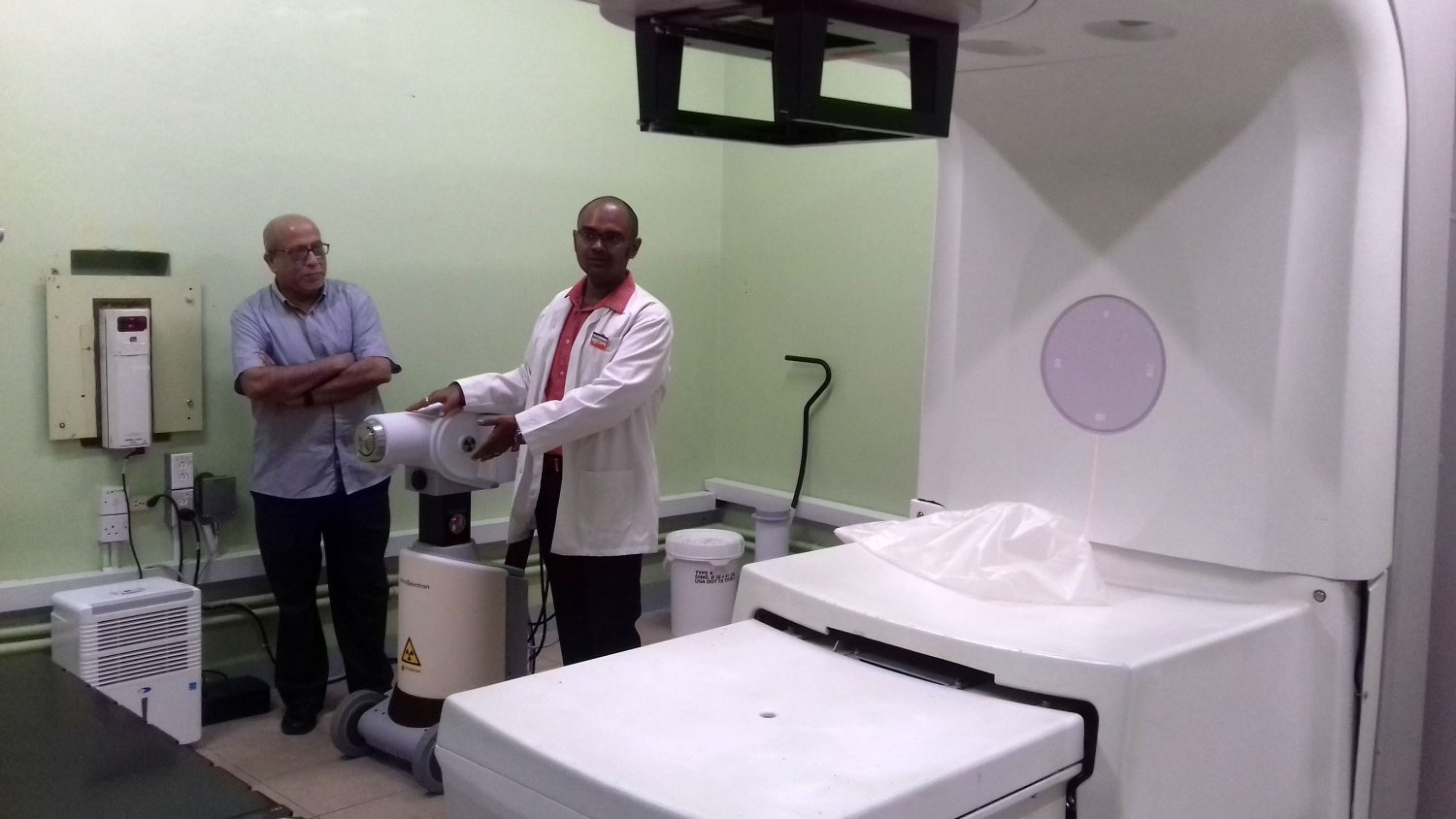With January designated cervical cancer awareness month, the Cancer Institute of Guyana is offering free Pap smears and is encouraging women to take advantage of the service.
Director of Outreach Dr. Syed Ghazi told a news conference yesterday that the institute is advocating that women opt for Pap smears as opposed to VIA (Visual Inspection with Acetic Acid) screening as while the latter is cheaper and more practical for women, Pap smear screening is the gold standard for testing.
The Pap smear tests for the presence of precancerous or cancerous cells on the cervix.
Usually, it costs about $3,500 to have a Pap smear done but Dr. Ghazi said that consultations at the institute are free and if someone visits with results from another doctor they are seen free of cost.
“When people come here, we try to help them…,” he noted before adding that the institute has a very good relationship with the oncology department of the Georgetown Public Hospital Corporation.
Dr. Ghazi revealed that more women have been going to the institute for screenings as opposed to what happened in the past when they went because of signs and symptoms and when some were already in the later stages of the cancer.
However, he also issued a warning against patients being advised to use natural remedies and to not avail themselves of chemotherapy and radiotherapy treatments. He said while he is not against natural treatments, they should be used in tandem with the medical treatments. “For God’s sake, don’t kill people,” he stressed.
Dr. Ghazi also expressed concern that signs and symptoms of the cancer are not taken seriously by physicians at times and in some cases some of them may not be able to read the signs and symptoms. He pointed out that delays also occur when patients go from one doctor to the next.
According to Dr. Ghazi, over the years the institute has done testing in various regions and with the support of a grant from the Australian government free testing has also been provided, with about 1,000 women being tested annually over the last three years. This year, the institute will be targeting regions Seven and Six during its outreach.
The collaboration with Australia is meant for work in interior locations but Dr. Ghazi added that with support from other friends, the institute is trying to provide urban women with free screening as well.
He also said that the institute is part of the effort to eliminate cervical cancer from the region by 2025 and he expressed thanks to the Caribbean coalition with which it has been partnering for its support.
Brachytherapy treatment
Meanwhile, apart from announcing the free Pap smears for January, the institute also announced that it has acquired a state-of-the-art machine that provides brachytherapy, which is an advanced form of treatment that is more precise.
According to the Cancer Treatment Centers of America website, brachytherapy is an advanced cancer treatment. It states that radioactive seeds or sources are placed in or near the tumor itself, giving a high radiation dose to the tumor while reducing the radiation exposure in the surrounding healthy tissues. With High-Dose Rate (HDR) Brachytherapy, thin catheters are first placed in the tumor. The catheters are then connected to an HDR afterloader. This machine contains a single highly radioactive iridium pellet at the end of a wire. The pellet is pushed into each of the catheters one by one under computer control. With a few well-placed catheters in the tumor, HDR brachytherapy can provide a very precise treatment that takes only a few minutes. After a series of treatments, the catheters are removed, and there are no radioactive seeds left in the body.
According to Dr. Sayan Chakraborty, Medical Director and Consultant Oncologist at the institute, they only started using the machine a few months ago and about 20 patients have been treated. While it is too early to determine how successful it is, Dr. Chakraborty said that he has seen good signs so far. While the treatment can be done for other forms of cancer, the doctor said they are only treating cervical cancer presently because it is the most prevalent. Other forms of cancers are being treated using other treatment forms.
And even though the brachytherapy treatment costs about $300,000, he pointed out that to access same in other countries may cost about US$5,000.
Further, Dr. Ghazi said that persons are not “turned back” because of a lack of money when they approach the institute for treatment since they attempt to assist. He noted that the cancer is seen more commonly among people who can ill afford treatment and they need help. In this light, he called for corporate Guyana to support their initiatives as they are in the business of helping people and they do have the staff and equipment to do so.
For last year Dr. Chakraborty said there were about 75 to 80 patients with cervical cancer and they are “all still there” in various stages of treatment. He said he would need about five years to determine the success stories among these patients.
Just last week, he said, he had five patients who walked into the institute to be screened and they all had pre-cancerous lesions and these will be treated and they will have “absolutely normal lives.”
While they did not have statistics to share, both doctors asserted that more women are becoming aware of the cancer and are seeking screenings much earlier than in the past.
The Cancer Institute of Guyana is located in the compound of the Georgetown Public Hospital. Its telephone numbers are 225-5701 and 225-5703.






